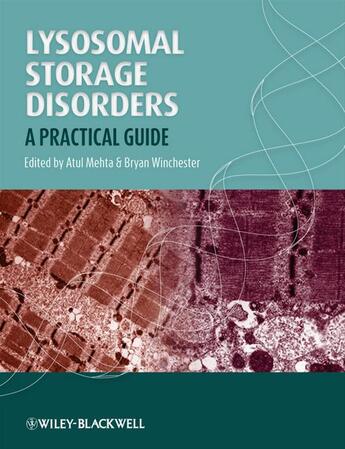Des idées de lecture pour ce début d'année !
Passionné(e) de lecture ? Inscrivez-vous
gratuitement ou connectez-vous pour rejoindre la
communauté et bénéficier de toutes les fonctionnalités du site !

Awareness of lysomal storage disorders needs to be raised and there is very substantial pharmaceutical interest to do so. The disorders are often viewed as obscurities but in fact they are treatable. Enzyme replacement therapy is available for four of the disorders and will be available for a further three disorders in the course of the next year. Substrate reduction therapy is licensed for one of them but in the course of the next 12 months it will be licensed for two others and a new form of substrate reduction therapy is being introduced.These diseases present to a very wide range of physicians and paediatricians. Gaucher disease may present to orthopaedic surgeons or haematologists with splenomegaly and/or skeletal disease. However, paediatricians see the childhood variants of Gaucher disease and therefore may present it to neurologists. Fabry disease typically does not present in childhood but presents to adult physicians with end organ damage (renal failrure, cardiac disease, stroke, neuropathy, gastrointestinal symptoms). A text book would draw these divergent strands together.There is substantial scientific interest in these diseases. Gaucher is well recognised as a paradigm of a molecular illness, understood at a basic level which is treatable now with specific therapy and is likely to be treatable with gene therapy within the coming five years. New advances in small molecule therapy e.g. chaperone treatment, modified antibiotics affecting ribosomal function are likely to be useful for these diseases in the near future. Trials are already underway. These diseases therefore offer a fabulous platform for teaching modern clinical science from basic genetics right the way through to clinical applications.
Il n'y a pas encore de discussion sur ce livre
Soyez le premier à en lancer une !

Des idées de lecture pour ce début d'année !

Si certaines sont impressionnantes et effrayantes, d'autres sont drôles et rassurantes !

A gagner : la BD jeunesse adaptée du classique de Mary Shelley !

Caraïbes, 1492. "Ce sont ceux qui ont posé le pied sur ces terres qui ont amené la barbarie, la torture, la cruauté, la destruction des lieux, la mort..."